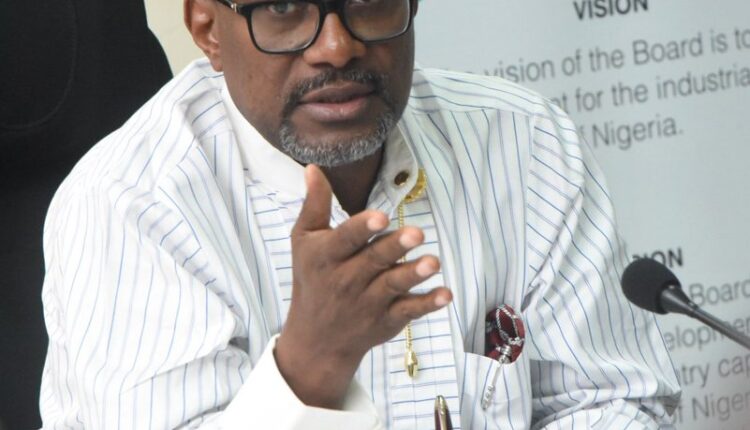NCDMB Advocates for the Creation of African Local Content Fund
Nigerian Content Development and Monitoring Board (NCDMB) has advocated for the creation of an African Local Content Fund to support the continent’s hydrocarbon projects as banks and financial institutions are shifting focus in funding renewable projects against fossil projects.
The Executive Secretary of the Nigerian Content Development and Monitoring Board (NCDMB), Engr. Simbi Wabote made this known at the 6th PETAN’s Sub-Saharan Africa International Petroleum Exhibition and Conference (SAIPEC) taking place from 22 – 24 February 2022 at Eko Hotels Lagos.
This statement comes in line with the global energy transition agenda to reduce carbon emissions, as many banks and financial institutions have stopped funding fossil fuel projects.
Wabote called on the African Export-Import Bank, African Development Bank (AfDB), and the African Union (AU) to deepen collaboration with the African Continental Free Trade Agreement (AfCFTA), to support hydrocarbon development on the continent.
“Let me use this opportunity to once again canvass for the creation of an African Local Content Fund that could be utilized to set up a large financial institution for the funding of the development of oil and gas projects in Africa. This is especially important against the backdrop of the reluctant and outright declaration by some banks and financial institutions to stop funding hydrocarbon-related projects. I hope the AfreExim bank, the AfDB, or the AU, through the AfCFTA secretariat, need to institute a form of contribution no matter how little as a fund to support the continent’s needs in developing hydrocarbon,” he said.
Wabote identified legal framework as a key collaborative strategy to drive local content practice, adding that many oil producers in Africa have made efforts to put in place laws that are investor-friendly to guide their oil and gas industry.
“I have said it several times that an enabling legal framework backed with appropriate legislation is very fundamental in local content practice. I have lived it, I have seen it. A law or even a decree as the case may be, depending on the political arrangement in a country, sets the framework and boundaries for all local content practitioners.
“Many African oil producers have made efforts to put in place investor-friendly laws to guide activities in their oil and gas industry,” he said.
With the remarkable success that Nigeria has recorded in the implementation of local content law in its oil and gas industry, Wabote said that the country can serve as a model to other African countries.
He said, “I must recognize the ongoing collaboration with our brothers and sisters in Angola, Ghana, Sierra Leone, Senegal, Kenya, Mali, Mozambique, Niger Republic, Uganda, and many others as we seek strategies and compare notes in our local content journey. These laws, also, are a sort of precursor to the wider African Continental Free Trade Agreement (AfCFTA), which seeks to create the world’s largest free trade area by integrating 1.3 million people across 54 countries.”
The NCDMB boss also noted the need for collaboration in the area of building infrastructure. He defined infrastructure as fundamental facilities, services, and systems serving a country, city, or other geographical areas, for its economy to function effectively.
According to him, infrastructure such as hydrocarbon processing plants, power plants, pipelines, ports, jetties, terminals, among others, help to transform resources from their natural form into usable forms and deliver them where they are needed to meet the needs of people in the society.
“The African oil and gas landscape provides huge opportunities for cross-border infrastructure to unlock development for stranded assets, or bring energy closer to the people. Such infrastructure also leads to the lower unit of development cost in the long run,” he said.
The price of crude oil in recent weeks has been hovering above $90 per barrel. However, Wabote said that “This global trend in crude oil price presents opportunities and challenges to African oil producers, and its service providers in respect to field development, security of supply, affordability, revenue generation, energy transition, and cost of service – most importantly.”
SAIPEC is hosted by the Petroleum Technology Association of Nigeria (PETAN), a leading organization that represents oilfield services and technology companies operating across upstream through to downstream projects.
PETAN is a leader in the promotion of innovative engineering and creative solutions, that help advance the petroleum industry both nationally and regionally.
Year on year, SAIPEC continues to address the needs of companies seeking to showcase their innovative solutions and new technologies, and to support the development of major new businesses and partnerships to benefit Sub-Saharan Africa’s petroleum economy.


